Michael O'Mahony
Habit Coach: Customising RAG-based chatbots to support behavior change
Nov 28, 2024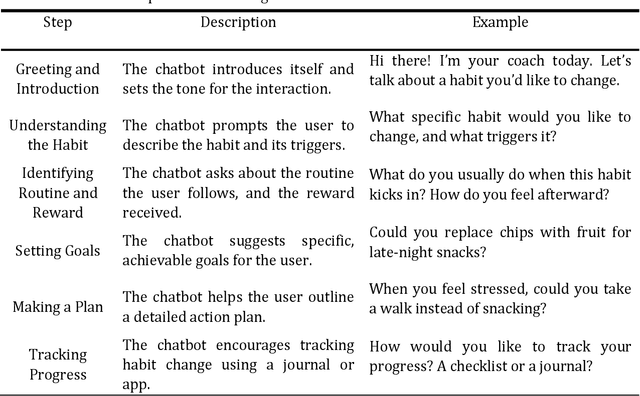
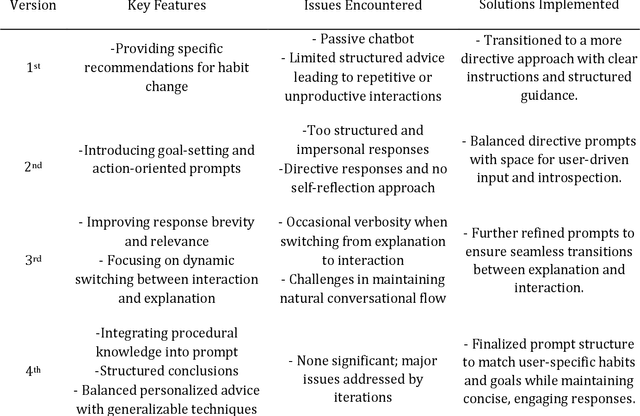
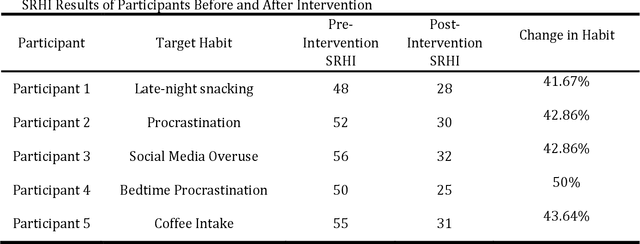
Abstract:This paper presents the iterative development of Habit Coach, a GPT-based chatbot designed to support users in habit change through personalized interaction. Employing a user-centered design approach, we developed the chatbot using a Retrieval-Augmented Generation (RAG) system, which enables behavior personalization without retraining the underlying language model (GPT-4). The system leverages document retrieval and specialized prompts to tailor interactions, drawing from Cognitive Behavioral Therapy (CBT) and narrative therapy techniques. A key challenge in the development process was the difficulty of translating declarative knowledge into effective interaction behaviors. In the initial phase, the chatbot was provided with declarative knowledge about CBT via reference textbooks and high-level conversational goals. However, this approach resulted in imprecise and inefficient behavior, as the GPT model struggled to convert static information into dynamic and contextually appropriate interactions. This highlighted the limitations of relying solely on declarative knowledge to guide chatbot behavior, particularly in nuanced, therapeutic conversations. Over four iterations, we addressed this issue by gradually transitioning towards procedural knowledge, refining the chatbot's interaction strategies, and improving its overall effectiveness. In the final evaluation, 5 participants engaged with the chatbot over five consecutive days, receiving individualized CBT interventions. The Self-Report Habit Index (SRHI) was used to measure habit strength before and after the intervention, revealing a reduction in habit strength post-intervention. These results underscore the importance of procedural knowledge in driving effective, personalized behavior change support in RAG-based systems.
Automatic Contact Tracing using Bluetooth Low Energy Signals and IMU Sensor Readings
Jun 13, 2022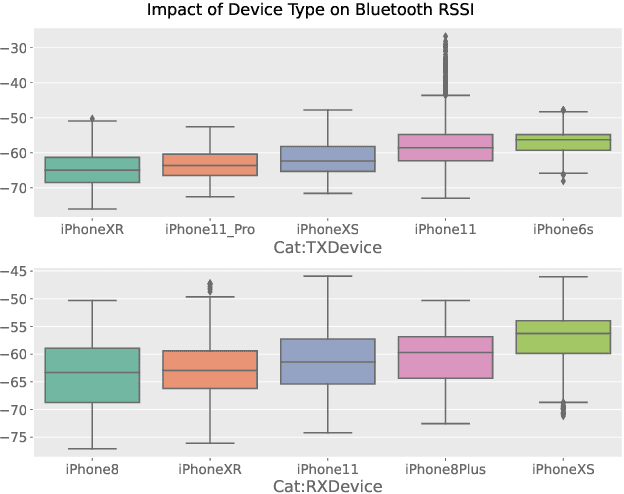
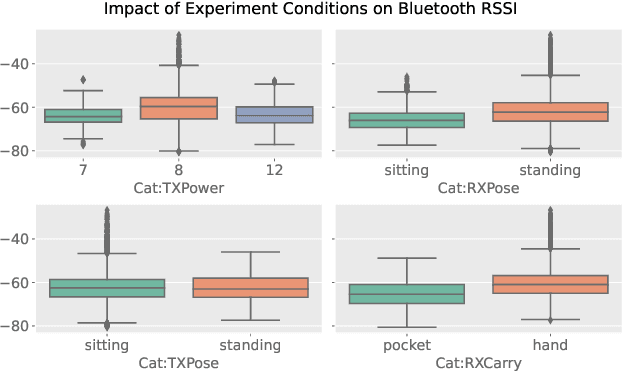
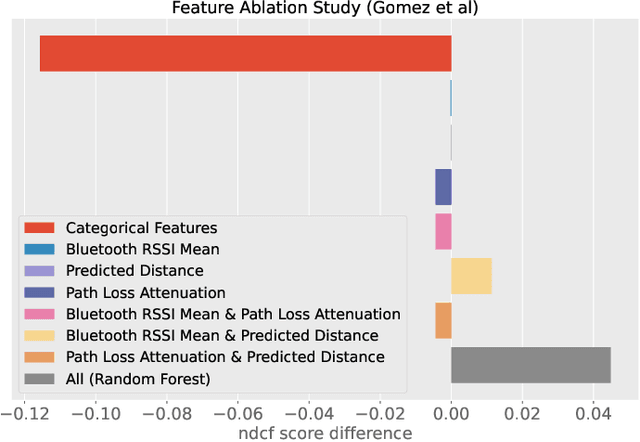
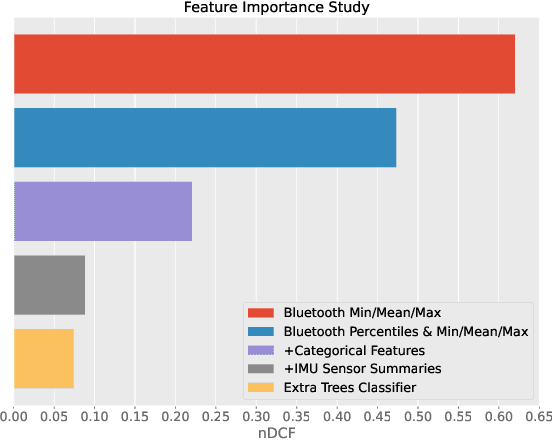
Abstract:In this report, we present our solution to the challenge provided by the SFI Centre for Machine Learning (ML-Labs) in which the distance between two phones needs to be estimated. It is a modified version of the NIST Too Close For Too Long (TC4TL) Challenge, as the time aspect is excluded. We propose a feature-based approach based on Bluetooth RSSI and IMU sensory data, that outperforms the previous state of the art by a significant margin, reducing the error down to 0.071. We perform an ablation study of our model that reveals interesting insights about the relationship between the distance and the Bluetooth RSSI readings.
 Add to Chrome
Add to Chrome Add to Firefox
Add to Firefox Add to Edge
Add to Edge